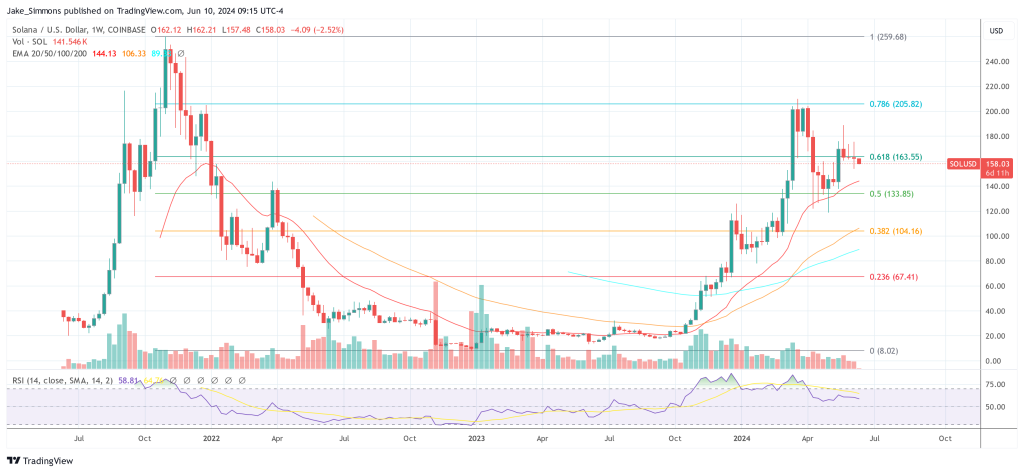The Solana Foundation has expelled a number of validator operators from its influential delegation program. This action is attributed to their involvement in executing “sandwich attacks” against unsuspecting network users, a form of predatory trading that undermines network integrity. The decision adds a new layer to the escalating rivalry between Solana and Ethereum, highlighting broader concerns over network governance and the ethical dimensions of validator operations.
Tim Garcia, the Validator Relations Lead, made the announcement via Discord, emphasizing the finality of the Foundation’s decision: “A group of operators in the Solana Foundation Delegation Program have been removed from the program due to violations […] Decisions in this matter are final. Enforcement actions are ongoing as we detect operators participating in mempools which allow sandwich attacks.”
Mert Mumtaz, founder and CEO of Helius Labs, provided a detailed explanation of the issues at hand. He described a sandwich attack as a manipulative trading strategy where malicious actors exploit the ordering of transactions to disadvantage retail investors, ensuring they receive the worst possible prices.
“This is not natively possible on Solana because the client does not have a mempool,” Mumtaz explained. “Certain actors have added mods to their validators to enable sandwiching on Solana.” He stressed that the SOL Foundation’s primary goal is to protect retail users from these attacks, reinforcing that while the ousted operators can still function on the network, they will no longer benefit from Foundation subsidies.
Solana Vs. Ethereum Rivalry Heats Up
The incident has drawn sharp criticism from Ethereum community stalwarts, including Ryan Berckmans, an esteemed investor known as ryanb.eth. He critiqued SOL’s approach to solving issues related to MEV, questioning the network’s seriousness as a settlement layer.
“The Solana Foundation provides financial support to many validators because running a Sol validator costs $65k+/year. Now, the next step in their plan to solve MEV was to pull financial support from validators who extract MEV. Solana is not a serious settlement layer,” Berckmans asserted.
Countering Berckmans’ criticisms, Mumtaz highlighted the financial and operational disparities between Solana and Ethereum validators. “You haven’t done the work required to have an informed opinion,” Mumtaz retorted, pointing out that while Solana validators have lower setup costs compared to Ethereum’s 32 ETH minimum stake requirement.
“Perhaps you’re forgetting that with the 32 ETH minimum, it costs ~120kfor Eth, double Solana — *and* while SOL validator revenue has surpassed Eth multiple times in the past month. this isn’t pulling “support from validators doing mev,” he stated and clarified that the SOL Foundation is “simply not giving out subsidies to malicious validators who sandwich, who rob retail and then keep all the rewards with 0 network/in-protocol distribution—it’s purely extractive.”
Furthering the dialogue, Lucas Bruder, CEO of Jito Labs, defended the Foundation’s position, emphasizing the alignment of interests between the Foundation and the broader network. “The Solana foundation is a staker on the network. Stakers should want to see the network be successful. Why would they support something that decreases the likelihood of the network being successful?” he posited.
However, Bruder also acknowledged the predominant nature of memecoin trading and the potential risks of alienating this user base. “Most activity on Solana is memecoin trading, so if you screw over the main user base of the blockspace, they’ll leave and we’ll all be sitting here with less usage wondering why tf we didn’t do anything,” he argued, stressing the need for long-term solutions to network challenges.
Ryan Berckmans doubled down on his critique, stating: “So if the Solana Foundation doesn’t use their centralized power to incentivize validators to stop extracting max MEV, then memecoin traders may get fed up and switch to a fast cheap chain with less potential for MEV extraction, like the Base Ethereum L2, and then Solana would be a ghost chain. I think this story writes itself. The SOL/ETH ratio vastly overstates Solana’s durability as a serious competitor to either the Eth L1 or our best L2s.”
This ongoing debate underscores the heated rivalry between SOL and ETH as well as the complexity of governance in decentralized networks, the technical challenges associated with MEV, and the strategic decisions that can significantly impact the perceptions and functionality of blockchain ecosystems.
At press time, SOL traded at $158.03.










